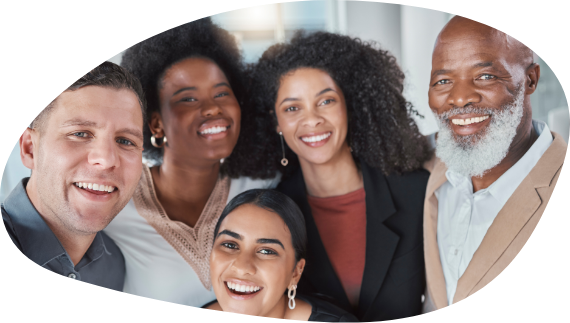NBCDI Public Voices Fellowship on
Racial Justice in Early Childhood
Amplifying Voices and Narratives for Equity in Early Childhood
VISION
ensuring diverse perspectives shape essential conversations
NBCDI ANNOUNCES THE 2025 PUBLIC VOICES FELLOWS
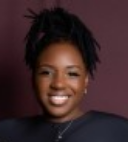
NATALIE WILLIAMS is the Senior Director of Education, Exhibits, and Playful Learning at Miami Children’s Museum, where she leads the design and implementation of equity-driven, culturally responsive learning experiences that center Black children and families. A proud Black woman and Miami native, Natalie is dedicated to creating inclusive educational environments that affirm identity, promote neurodiversity, and address systemic barriers faced by underrepresented communities. In her role, Natalie oversees the Museum’s educational strategy, school partnerships, and exhibit development. She spearheaded a transformative educational framework focused on playful learning to develop foundational skills in literacy, math, and social-emotional growth. She also leads a national research initiative on kindergarten readiness through innovative museum-school collaborations. Natalie’s leadership extends beyond the Museum. As a founding member of the Museum Playful Learning Collective (MPLC), she advocates for museums to serve as dynamic platforms for racial justice and community engagement. Her work emphasizes inclusive leadership, trauma-informed practices, and culturally affirming supports for neurodiverse children. She holds a B.A. in Psychology, a Master’s in Special Education, and an MBA in Business Leadership. Natalie regularly presents nationally on equity in early childhood education, museum-based learning, and strategies to elevate diverse voices in the education ecosystem.
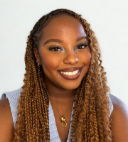
BEVERLEY WAITHAKA is a public health professional with over four years of experience advancing health equity through community-rooted programs, early childhood initiatives, and cross-sector collaboration. Her work focuses on bridging policy and practice to design systems that meet Black families where they are, with care that is culturally responsive, preventative, and sustainable.
She has led maternal and child health initiatives across local government and nonprofit sectors, including doula access advocacy, countywide community engagement efforts, and resource navigation for underserved families. Her approach is grounded in both systems thinking and on-the-ground experience, with a commitment to reimagining how care is delivered to historically excluded communities. This fall, Beverley begins her Master of Public Health in Health Policy & Management at the University of Texas Health Science Center in Houston. She aspires to build a national voice and policy platform focused on trauma-informed prevention, culturally grounded wellness infrastructure, and equity-centered systems for children and families, from birth through adulthood.
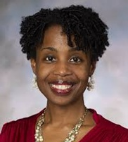
VALENCIA P. WALKER, MD, MPH, (She/Hers) serves as Vice Dean for Health Equity and Inclusion at Geisinger College of Health Sciences. A physician leader within organized medicine, Dr. Walker is an Executive Committee member for the AAP’s Council on Health Equity and Inclusion (CHE) and former Program Chair for CHE. In 2022, she was elected to the Administrative Board for the AAMC’s Council on Faculty and Academic Societies after previously serving as the Central Region Representative for the AAMC’s Group on Diversity and Inclusion. As a practicing neonatologist, Dr. Walker champions the elimination of health inequities for pregnant people and their infants. This includes her position as co-founder and president for Birthing the Magic Collaborative, a nonprofit organization dedicated to empowering Black birthing people with the knowledge and confidence to navigate pregnancy, the birthing experience and infant wellness. Dr. Walker completed her undergraduate studies at Florida A&M University then obtained her medical degree from Emory University School of Medicine. She finished her Pediatrics residency at University of Tennessee – Memphis, before completing a Neonatology fellowship at Cincinnati Children’s Hospital Medical Center. She also holds an MPH in Health Policy from Harvard T.H. Chan School of Public Health.
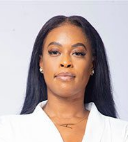
ASHLEY STEWART, PhD, is a developmental psychologist, equity scholar, and public policy fellow whose work explores the intersection of race, mental health, education, and technology in the lives of Black youth. Currently a Health Equity Research Fellow at the Congressional Black Caucus Foundation and American Institutes for Research, she translates research into public-facing insights and community-informed policy recommendations. A former tenure-track professor, Ashley brings deep expertise in qualitative and mixed-methods research, with a particular focus on the mental health impacts of structural racism, digital ecosystems, and educational inequality. Ashley has led national studies on misinformation, mental health, and digital literacy among Black emerging adults, as well as research on the impact of federal workforce reductions on Black professionals. Her writing bridges scholarship, advocacy, and practice, and she is committed to uplifting the lived experiences of Black youth and families to inform structural change. Through the Public Voices Fellowship, Ashley hopes to expand her public scholarship and further amplify narratives that challenge deficit-based discourses and promote justice, healing, and joy for Black children and communities.
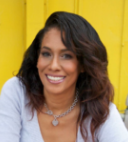
JANICE ROBINSON CELESTE is the founder of Successful Black Parenting Magazine, a multi-award-winning publication dedicated to supporting Black families. With a degree in early childhood education and an MBA, Janice has expertise in early childhood education, nonprofit leadership, and media. She is an author, including Miles Stuffy Nose, winner of the Gold Seal, Moms Choice Award, and the executive producer of Ethnic Animations. As the host of the syndicated podcast BACKTALK, Janice advocates for Black children and families. She is also the founder of the National Black Parenting Conference. Janice has been a featured speaker at the National Parenting Conference at Disney and the National Black Child Development Conference. She resides in Atlanta, where she continues to uplift her community.
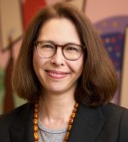
AMY K. MATSUI, JD is Vice President for Income Security and Child Care at the National Women’s Law Center. She leads the Center’s work on state and federal child care and early learning policy and economic policies affecting women and families. Her work comprises policy analysis, administrative and legislative advocacy, and public education and outreach, with the goal of increasing gender, racial, and economic equity. She has written numerous reports and articles on care and economic security issues, testified before Congress and federal agencies on topics including care, tax, and retirement security, and been featured as an expert in the media. Prior to joining the Center in 2002, Ms. Matsui was a litigation associate at Farella Braun + Martel LLP, in San Francisco, CA. She clerked for the Honorable Carolyn Dineen King, then-Chief Judge of the U.S. Court of Appeals for the Fifth Circuit, in 2000. She is a graduate of the University of California at Berkeley, and Stanford Law School. Before law school, Ms. Matsui taught 4th grade ESL and middle- and high-school French.
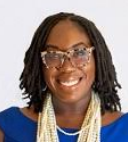
ADIA LOUDEN, PhD Candidate, Writer. Researcher. Storyteller. Soul-Searcher. I am a doctoral candidate in the Department of Maternal and Child Health at the Gillings School of Global Public Health at the University of North Carolina-Chapel Hill. My distinct life purpose is to center the narratives of Black communities, closing the gap between Black people and access to safe and inclusive environments that promote well-being. I leverage my passion for writing and public health to advance health and equity for Black youth, families, and communities. I completed a Master of Public Health degree in Epidemiology and a Certificate in Maternal and Child Health at Emory University in Atlanta, Georgia. Beyond academia, I work as a versatile, independent freelance writer and content creator, assisting companies, organizations, and individuals committed to advancing public health, well-being, and their unique stories. My research focuses on Black life, Black child and family health, neighborhood health, racial equity, and reducing violence in Black communities. Through a combination of scholarship, community engagement, activism, and creative expression, my goal is to 1) bridge gaps between data and lived experiences to drive systemic change and 2) inform interventions that foster safety, equity, and well-being for Black communities.
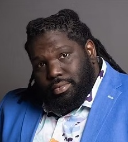
JOSHUA LISTON-ZAWADI is a visionary community leader and the creator of Melanated Daddy and Dad Doula University, pioneering spaces that center non-birthing parents in perinatal care. A proud Milwaukee native, Joshua reimagines fatherhood as a force for healing, advocacy, and generational change. Through Dad Doula, he equips fathers and partners to show up with intentional presence before, during, and after birth, challenging traditional models that overlook their role. As co-founder and Executive Director of Life reDefined, Joshua builds programs that strengthen family and community bonds through collaborative, culturally responsive experiences. An Army veteran, husband, and father of four, he grounds his work in faith and the belief that “Iron sharpens Iron.” His womanist, community-rooted vision reshapes how systems engage Black and Brown families, blending innovation with compassion to create new pathways of care. Websites for viewing are: www.daddoulauniversity.com and www.LifeRedefinedmke.org
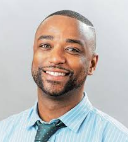
LANCE KEENE, PhD is an Assistant Professor in the Silver School of Social Work at New York University (NYU), where I serve as Project Director for New York City Communities 4 Health (NYCC4H)—a federally funded research initiative dedicated to improving mental, behavioral, and developmental outcomes among Black children and families in New York City. I am also an affiliate investigator at the Center for Drug Use and HIV/HCV Research (CDUHR) at NYU’s Global School of Public Health. My research applies intersectional and health equity frameworks to study how race-related factors and structural disparities are associated with health outcomes in Black children. I have over five years of graduate-level teaching experience focused on early childhood, adolescent development, emphasizing social and racial injustice as experienced by Black children in the United States (U.S.). I am well-prepared to serve as a National Black Child Development Institute (NBCDI) Public Voices Fellow on Racial Justice in Early Childhood, as this role aligns with my professional and personal dedication to the advancement of environments that recognize and build upon the strengths and cultural contributions of Black children, highlighting the significant social and cultural assets they offer to society.
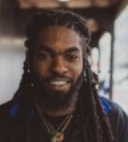
NAYO JOHNSON is an Early Childhood Education (ECE) Engagement Coordinator with eight years of experience working with Black youth and families. My work is rooted in a commitment to equity, cultural pride, and building pathways for Black leadership in education. I focus on creating inclusive, affirming spaces that honor the voices of those often left out of early childhood conversations. Throughout my journey, I’ve designed and supported programs that center the lived experiences of Black families, while advocating for systemic changes that promote access, retention, and representation in the ECE field. I believe in people over policy and bring a relational, community-centered approach to everything I do—from coordinating professional development to building partnerships that shift narratives. Currently, I’m pursuing my degree in Social Work with plans to deepen my impact through clinical training and long-term systems change. I see education as both a form of resistance and a tool for liberation, especially when it empowers Black communities to define success on our own terms. My mission is to uplift, engage, and transform creating space for joy, healing, in every classroom, center, and community I touch.

KAMYE HUGLEY is a learning strategist, educator, and literacy advocate with over a decade of experience advancing equitable learning outcomes. Kamye supports high-quality professional learning for early literacy educators and consultants across the nation. Previously, she led training and development initiatives and coached AmeriCorps members delivering literacy interventions in Florida’s largest school districts. Kamye designs innovative and active learning experiences rooted in adult learning theory and digital pedagogy. Her thought leadership draws on a deep understanding of the science of reading, instructional design, and family engagement. Kamye has a Bachelor of Arts in English and a Master of Science in Reading (K-12). She is committed to amplifying underrepresented voices and addressing the systemic barriers facing Black children and their families. Her work centers the belief that literacy is a fundamental lever for racial justice and thriving communities.
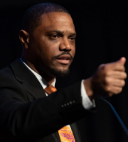
NOSAKHERE GRIFFIN-EL, PhD, is a transformative educator, literacy innovator, and Co-founder/CEO of the award-winning Young Dreamers’ Bookstore. Dr. Griffin-EL transformative work has impacted the lives of children and families in our city, state, nation, and international by illuminating the interconnection between dreaming and reading. For Dr. Griffin-EL, he believes reading is a process that inspires children to create dreams have the power to make the world a better place. Dr. Griffin-EL’s journey began when his sons were in pre-school. Frustrated with the lack of enriching and culturally relevant experiences, he became a stay-at-home dad. This resulted in collaborating with his wife Dr. Eliada Griffin-EL to co-create learning experiences that met their sons at their needs and dreams. Seeing the impact innovations had on their children, he began creating learning experiences in his community for elementary-aged children and their families. In addition to working with children, he served as a contributing writer for local, statewide, and national publications, earning him the title of expert in early childhood literacy.
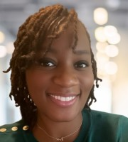
EBONI DELANEY is a storyteller, strategist, and advocacy campaign leader committed to amplifying the voices of family child care educators. As the Interim Director of Policy and Movement Building at the National Association for Family Child Care (NAFCC), she leads national initiatives that blend narrative, engagement, and advocacy to influence public understanding and federal action. Her work includes digital storytelling, video campaigns, and educator-centered narratives that have gained national recognition, including a regional Emmy-nominated documentary, a blog series, and creative media projects that spotlight the impact of home-based care. Eboni also leads NAFCC’s federal advocacy efforts by developing messaging and engagement strategies that connect educators directly with policymakers. She also launched and leads a nationwide family child care advocacy campaign. With a focus on clarity and connection, Eboni helps translate complex policy issues into language and stories that resonate with family child care educators and make advocacy more accessible and actionable across the field. She recently served on the planning committee and co-led the first-of-its-kind Home-Based Family Child Care Global Learning Convening hosted by NAFCC. She also launched and registered the first early education apprenticeship program in Texas, expanding career pathways for early educators across the state. Eboni holds a bachelor’s degree in English, a master’s in Instruction and Curriculum Leadership, and certificates from Harvard Business School Online and Google.
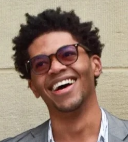
TERRELL COUCH is a lifelong social justice advocate, mounting a career in policy advocacy centered around early childhood needs. Born in Michigan, Couch has traveled across the United States connecting with individuals and communities to build a broad coalition of story collecting and support. During his time in Idaho, Couch began his work in policy advocacy leading multiple legislative campaigns for early childhood education where he would develop a passion for the issue. Returning to Michigan, he now works for Mothering Justice, a multi-state advocacy organization centered around elevating the voices of Black and Brown Mamas in policy, where he continues to fight for a society that values the early years of development both in his state and nationally.
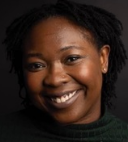
CRYSTAL COACHE, Vice President for Diversity, Equity, Inclusion and Belonging leads the law center’s work to foster an environment where people of all races, genders, abilities, nationalities, sexual orientations, sizes, and socioeconomic backgrounds, grow, belong, and thrive. Leading professional development and learning, employee wellness, and people data and research to drive improvements, Crystal collaborates across teams to ensure that the progressive policies, practices, and culture the law center advocates for externally are a reality for its internal staff. Crystal has spent her career working in education, DEI, and HR, with an emphasis on talent acquisition & development. Prior to joining the law center, Crystal was Chief of Staff at Urban Teacher and supervised IT, Marketing and Communications, Talent, and DEIA (Diversity, Equity, Inclusion and Antiracism). Crystal was also a founding talent leader for vChief, head of talent and recruitment for an ed-tech company, head of recruitment for KIPP: NJ, and an independent consultant on education, DEI, and org culture. Crystal holds a Master’s degree in teaching from Johns Hopkins University, which she obtained as a high school teacher in Baltimore City through Teach for America. She holds a Bachelor of Arts in Political Science, and certificates from the Eagleton Institute of Politics and Institute for Women’s Leadership.
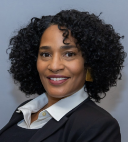
DANIELLE CALDWELL is a nationally recognized early childhood professional with 30 years of experience as an educator, advocate, and leader in home-based child care. As a former Provider In Residence at the National Workforce Registry Alliance, she brought her expertise to the forefront of policy efforts that promote race-equitable workforce practices. Danielle is the former owner and practitioner of The Children’s Room, LLC, a home-based child care program in Durham, North Carolina, where she provided culturally responsive care rooted in community and equity. Her work is grounded in lived experience and a deep commitment to closing the achievement gap for children in marginalized communities. With a passion for diversity, equity, and inclusion, she has contributed to national and local initiatives focused on uplifting early educators and advancing systems change. Danielle holds a Bachelor of Science in Human Development and Family Studies with BK Licensure. Her voice continues to shape the future of early childhood education by centering the perspectives of providers and families often left out of decision-making spaces.
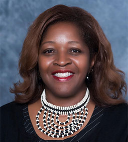
GLORIA SWINDLER BOUTTE, PhD, is a Carolina Distinguished Professor at the University of South Carolina. Her scholarship focuses on equity pedagogies. She is the author/editor of eight books—two award-winners. Dr. Boutte has presented nationally and internationally on equity issues and has received prestigious awards such as the Fulbright Scholar; Fulbright Specialist;2020 National Council of Teachers of English (NCTE) Outstanding Educator in the English Language Arts—Elementary Section; the 2025 American Educational Research Association (AERA) Social Justice in Education Award; the 2021 AERA Division K Legacy award; and AERA 2022-23 Fellow Award. She was the founder and Executive Director of the Center for the Education and Equity of African American Students (CEEAAS). She has served as a Visiting Scholar and presented her work internationally on every continent except for Antarctica. Dr. Boutte is the mother of three children and seven grandchildren.
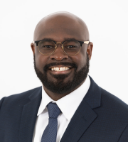
JAVIAN BAKER, PhD is a scholar, writer, and child advocate from New Orleans, Louisiana. He recently defended his Georgetown University dissertation titled And the Children Shall Lead Them: The Public Theology of Marian Wright Edelman and the Collective Responsibility for Abolishing Child Poverty. His research focuses on African American religion, politics, and culture. His research and teaching interests include, but are not limited to, African American Christianity and Black Islam, African American Political and Economic Thought, Ethics, and Religion in Public Life. Dr. Baker is a former Mellon-grant sponsored research associate at Loyola University of New Orleans, where he researched higher education in prison programs in the state of Louisiana. He is the vice-president for the Charles Deslondes Branch of the Association for the Study of African American Life and History in New Orleans. He also volunteers with several grassroots organizations concerning youth justice and environmental injustice advocacy coalitions. He holds a Ph.D. from Georgetown University, a Master of Theological Studies from Vanderbilt Divinity School, and a BA from Xavier University of Louisiana.
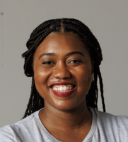
JULIENNE LOUIS-ANDERSON is an educator, strategist, and systems leader whose work centers racial equity across criminal justice, education, and nonprofit spaces. She currently serves as Strategic Initiatives and Grants Manager for the Orleans Parish Sheriff’s Office, where she oversees more than $8 million in community-based interventions focused on reentry, family reunification, victim services, and public safety. As the daughter of a formerly incarcerated Black man, Julienne brings both lived experience and policy expertise to her work—bridging institutional systems with community voice. Her advocacy is deeply rooted in her upbringing as a proud graduate of New Orleans public schools and in her professional beginnings as a classroom teacher and instructional coach. Her academic journey—from Howard University to Xavier University of Louisiana—shaped her pedagogical approach centered on asset-based instruction, cultural affirmation, and equity. Julienne lives in New Orleans with her husband, Ross, and their daughter, Janelle. Her commitment to building an educational and community legacy for her daughter is grounded in a multigenerational belief in collective liberation. Julienne sees her work as a calling: to ensure that Black children and families are equipped, affirmed, and empowered to eradicate unjust systems and build new ones.
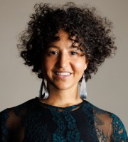
RIANA ELYSE ANDERSON, PhD, is an Associate Professor at Columbia University’s School of Social Work. She earned her PhD in Clinical and Community Psychology at the University of Virginia and completed a Clinical and Community Psychology Residency at Yale University’s School of Medicine and a Fellowship in Applied Psychology at the University of Pennsylvania. On the whole, Dr. Anderson aims to facilitate healing in Black families with practical applications of her research and clinical services, as well as through public engagement, mentorship, and policy recommendations. Dr. Anderson uses mixed methods to study discrimination and racial socialization in Black families and apply her findings to help families reduce their racial stress. She is particularly interested in how family-based interventions help to improve Black youth’s psychosocial well-being and health-related behaviors. Dr. Anderson is the developer and director of the EMBRace (Engaging, Managing, and Bonding through Race) intervention and CEO and Founder of RACE Space Inc., and loves to translate her work for a variety of audiences, particularly those whom she serves in the community, via blogs, video, and literary articles. Additionally, for her early career accomplishments, Dr. Anderson has been the recipient of over twenty awards, including national awards from SRA, SRCD, APS, and FABBS. Finally, Dr. Anderson was born in, raised for, and returned to Detroit and is becoming increasingly addicted to cake pops.

